hybrid caravans
Hybrid Caravans: A Comprehensive Exploration
Introduction
In an era defined by rapid technological advancement and a growing awareness of environmental sustainability, hybrid caravans have emerged as a compelling solution for efficient and eco-friendly transportation. This innovative concept combines the best of both traditional recreational vehicles (RVs) and modern hybrid vehicles, offering a unique travel experience that is both comfortable and environmentally conscious. This article aims to take readers on a journey through the world of hybrid caravans, exploring their definition, global impact, economic implications, technological advancements, regulatory landscape, challenges, successful case studies, and future prospects. By delving into these aspects, we will uncover the multifaceted nature of hybrid caravans and their significance in the ever-evolving travel industry.
Understanding Hybrid Caravans: Definition and Core Components
A hybrid caravan is a specialized motorhome or recreational vehicle that incorporates hybrid power systems, combining an internal combustion engine (ICE) with one or more electric motors. This dual-power system offers several advantages over conventional RVs, including improved fuel efficiency, reduced emissions, and enhanced performance.
Core Components:
- Hybrid Powertrain: The heart of a hybrid caravan is its hybrid powertrain, which typically consists of:
- A traditional gasoline or diesel engine.
- One or more electric motors powered by a battery pack.
- An advanced energy management system to optimize power distribution between the engines and motors.
- Battery Technology: High-capacity batteries, often lithium-ion, store energy for use by the electric motors, enabling electric-only driving for short distances. These batteries must be robust, lightweight, and efficient to support frequent charging and discharging cycles.
- Regenerative Braking: A key feature of hybrid caravans is regenerative braking, where kinetic energy normally lost during braking is captured and converted into electrical energy, replenishing the battery.
- Advanced Controls: Sophisticated control systems enable drivers to switch between different driving modes, optimize fuel efficiency, and monitor energy usage.
- Auxiliary Systems: Hybrid caravans also incorporate various auxiliary systems for comfort and convenience, such as air conditioning, heating, hot water, and entertainment systems.
Historical Context and Significance
The concept of hybrid vehicles gained significant traction in the early 2000s as environmental concerns grew and governments worldwide implemented stricter emission standards. While traditional RVs have been popular among recreational vehicle enthusiasts for decades, their high fuel consumption and emissions have prompted a search for more sustainable alternatives. Hybrid caravans represent a significant step forward, offering a practical solution that caters to the growing demand for eco-friendly travel options.
Significance:
- Environmental Sustainability: By reducing reliance on fossil fuels and cutting emissions, hybrid caravans contribute to mitigating climate change and improving air quality, especially in popular tourist destinations.
- Energy Efficiency: The efficient use of energy resources ensures that the vehicles’ batteries can be replenished through regenerative braking and smart driving practices, minimizing the need for frequent refueling.
- Enhanced Performance: Hybrid systems provide instant torque, resulting in improved acceleration and better handling, particularly in challenging terrain or when towing.
- Extended Range: With the ability to switch between ICE and electric power, hybrid caravans offer a longer overall range, allowing for more flexibility during long-distance travel.
Global Impact and Trends
The popularity of hybrid caravans is not limited to any specific region, as various countries have embraced this technology for different reasons and with varying degrees of success. Here’s an overview of some key global trends:
| Region | Trends and Factors Influencing Adoption |
|---|---|
| Europe | Stringent emission regulations and government incentives play a significant role in driving the adoption of hybrid caravans. Countries like Germany and the Netherlands have robust networks of electric vehicle charging stations, making them ideal for hybrid RVs. |
| North America | The United States and Canada have a thriving recreational vehicle industry, with a growing demand for more efficient and sustainable options. Hybrid caravans are gaining traction, especially among environmentally conscious travelers. |
| Asia-Pacific | Rapid urbanization and a rising middle class in countries like China and Japan drive the need for compact, fuel-efficient vehicles. Hybrid caravans offer a unique blend of recreational mobility and environmental responsibility. |
| Emerging Markets | In regions with growing infrastructure and improving economic conditions, hybrid caravans provide an attractive option for travelers seeking both comfort and sustainability. |
Economic Considerations: Market Dynamics and Investment Patterns
The market for hybrid caravans is experiencing significant growth, fueled by several economic factors:
- Changing Consumer Preferences: Increasing environmental awareness among consumers has led to a demand for eco-friendly travel options. Hybrid caravans cater to this preference while offering the added benefits of advanced technology and improved performance.
- Government Incentives: Many governments worldwide offer incentives, grants, and tax breaks to promote the adoption of hybrid vehicles, including hybrid caravans. These incentives lower the initial cost barrier for potential buyers.
- Tourism Industry Growth: The global tourism industry continues to expand, with more people choosing recreational vehicle vacations due to their flexibility and access to remote locations. Hybrid caravans tap into this growing market by providing an environmentally conscious alternative.
- Technological Advancements: As technology improves, hybrid systems become more efficient, powerful, and affordable. This leads to better performance, longer battery life, and reduced maintenance costs for consumers.
Investment Patterns:
- Original Equipment Manufacturers (OEMs): Major automotive manufacturers are investing heavily in hybrid caravan production, utilizing their existing vehicle platforms and technologies to develop specialized RV models.
- Startups and Specialty Producers: New entrants into the market offer innovative designs, advanced battery systems, and unique features, targeting environmentally conscious consumers willing to pay a premium for sustainable options.
- Second-Hand Market: With growing popularity, the second-hand hybrid caravan market is expanding, providing cost-effective options for buyers who want to join the trend without incurring new vehicle prices.
Technological Advancements and Future Potential
The field of hybrid caravan technology is evolving rapidly, with several breakthroughs poised to shape the future of recreational mobility:
- Advanced Battery Technology: Researchers are developing more powerful, lightweight, and longer-lasting batteries, such as solid-state and high-density lithium-ion variants. These improvements will enhance driving ranges and reduce charging times.
- Improved Power Management Systems: Advanced energy management systems (EMS) will become smarter, allowing for more efficient power distribution between the ICE, electric motors, and auxiliary systems, further optimizing fuel efficiency.
- Vehicle-to-Grid (V2G) Technology: Future hybrid caravans could integrate V2G capabilities, enabling them to feed electricity back into the grid during peak demand periods or when connected to renewable energy sources.
- Autonomous Driving Features: With advancements in autonomous driving technologies, hybrid caravans may eventually incorporate driver assistance systems and semi-autonomous features, enhancing safety and convenience.
- Smart Connectivity: Integration of Internet of Things (IoT) devices and connectivity options will allow for real-time monitoring of vehicle performance, energy usage, and remote diagnostics, improving overall efficiency and maintenance.
Policy and Regulation: Governance and Influence
The development and adoption of hybrid caravans are subject to various policies, regulations, and legislative frameworks that vary across jurisdictions. These rules play a critical role in shaping the industry’s trajectory:
- Emission Standards: Stringent emission regulations in many countries have driven the need for cleaner hybrid powertrains. Compliance with these standards is mandatory for all vehicle manufacturers, including those producing hybrid caravans.
- Vehicle Safety Standards: Hybrid caravans must meet the same safety criteria as conventional vehicles, ensuring driver and passenger protection during operation and emergency situations.
- Incentives and Subsidies: Governments often provide financial incentives, grants, or tax breaks to promote the purchase of eco-friendly vehicles, including hybrid caravans. These measures encourage early adoption and help offset the higher initial costs.
- Infrastructure Development: Investments in supporting infrastructure, such as charging stations for electric vehicle networks, are essential for the widespread acceptance of hybrid caravans. Government policies play a pivotal role in driving these infrastructure developments.
- Environmental Regulations: Laws and guidelines related to waste management, water usage, and energy conservation within RVs further influence the design and operation of hybrid caravans to ensure sustainable practices.
Challenges and Criticisms: Overcoming Barriers to Adoption
Despite their numerous advantages, hybrid caravans face several challenges and criticisms that have hindered their widespread adoption:
- Higher Initial Cost: The primary barrier for many potential buyers is the higher upfront cost of hybrid caravans compared to traditional RVs or conventional vehicles. However, long-term savings on fuel and maintenance can offset these initial expenses.
- Charging Infrastructure: In regions with limited access to electric vehicle charging stations, the range anxiety associated with low battery levels may deter consumers from adopting hybrid caravans. Continued infrastructure development is crucial to addressing this concern.
- Limited Model Options: Currently, the variety of hybrid caravan models available in the market is relatively small compared to conventional RVs. More manufacturers entering the space and diversifying offerings could increase consumer choice.
- Technological Complexity: The advanced systems and components in hybrid caravans can be more complex to service and repair than traditional vehicles, potentially leading to higher maintenance costs or challenges in finding specialized technicians.
Proposed Solutions:
- Incentivize Early Adoption: Governments can offer grants, tax breaks, or rebates for the purchase of hybrid caravans to encourage trial and adoption among consumers and businesses.
- Invest in Charging Infrastructure: Developing comprehensive electric vehicle charging networks, especially along popular tourist routes, will alleviate range anxiety and make hybrid caravans more viable for long-distance travel.
- Partner with Manufacturers: Collaborating with OEMs and startups to promote hybrid caravan production and offer a wider range of models can enhance consumer choice and appeal.
- Education and Training: Providing training programs for mechanics and service technicians to specialize in hybrid caravan maintenance will ensure proper servicing and repair, addressing concerns about complexity.
Case Studies: Real-World Applications and Lessons Learned
Case Study 1: New Zealand’s Eco-Friendly Caravan Fleet
New Zealand has embraced hybrid caravans as a sustainable alternative to traditional RVs, particularly for tourism operations. The country’s rugged landscapes and vibrant natural attractions make it an ideal testing ground for eco-friendly mobility solutions. Several tour operators have adopted hybrid caravans, offering visitors a unique way to explore the country while minimizing environmental impact:
- Implementing Hybrid Fleets: A major tour operator in New Zealand converted its entire RV fleet to hybrid models within two years, reducing fuel consumption by 40% and emissions by an equivalent amount.
- Customer Satisfaction: Tourists have positively received the hybrid caravans, praising their quiet operation, smooth driving, and reduced noise pollution at campsites.
- Environmental Benefits: The transition has contributed to the country’s goal of becoming carbon neutral, with significant cuts in greenhouse gas emissions from recreational vehicle operations.
Lessons Learned:
- Government Support: New Zealand’s government incentives and support for eco-friendly initiatives played a pivotal role in encouraging tour operators to adopt hybrid caravans.
- Tourist Demand: There is a growing demand among travelers for sustainable travel options, providing a strong market incentive for businesses to invest in hybrid technology.
- Community Engagement: Engaging with local communities and campsite owners to gather feedback and address concerns helped ensure the successful integration of hybrid caravans into existing tourism infrastructure.
Case Study 2: Japan’s Hybrid Caravan Revolution
Japan has witnessed a remarkable rise in popularity of hybrid caravans, driven by a combination of government incentives, a robust electric vehicle charging network, and a unique cultural affinity for recreational vehicles. The country’s compact hybrid caravan models cater to the needs of urban dwellers seeking weekend getaways and nature retreats:
- Compact Design: Japanese manufacturers have specialized in producing compact hybrid caravans that are easy to maneuver in congested city streets yet offer comfortable living spaces for weekends in the countryside.
- Charging Infrastructure: Japan’s extensive network of electric vehicle charging stations, including fast-charging options along major highways, supports the extended-range capabilities of hybrid caravans.
- Cultural Acceptance: The Japanese culture values recreational vehicle ownership and camping as a way to connect with nature and spend quality time with family and friends, fostering a strong market for hybrid caravans.
Lessons Learned:
- Urban-Friendly Design: Tailoring hybrid caravan designs to accommodate city dwellers’ needs for maneuverability and compactness while providing sufficient amenities for short trips has been a successful strategy.
- Charging Network Integration: A well-developed electric vehicle charging infrastructure is essential for the widespread adoption of hybrid caravans, enabling longer journeys and increased consumer confidence.
- Cultural Sensitivity: Understanding local cultural preferences and aligning product offerings with societal values can create a powerful market pull for eco-friendly travel solutions.
Future Prospects: Emerging Trends and Strategic Considerations
The future of hybrid caravans looks promising, with several emerging trends and technological advancements poised to shape the industry:
- Growth in Shared Mobility: The rise of shared mobility services, such as car-sharing and RV-sharing programs, could expand the market for hybrid caravans, offering cost-effective travel options for casual users.
- Off-Grid Adventures: With improved battery technology and off-grid energy solutions, hybrid caravans will appeal to adventurers seeking remote exploration without relying heavily on external power sources.
- Smart Home Integration: As smart home technologies evolve, hybrid caravans could become even more integrated with homeowners’ existing systems, enabling remote control of lighting, climate control, and security features while on the road.
- Autonomous Driving Features: The incorporation of driver assistance systems and semi-autonomous capabilities will enhance safety, improve driving experience, and attract a new segment of tech-savvy travelers.
- Customizable Designs: Future hybrid caravans may offer greater customization options, allowing buyers to personalize their vehicles to suit specific lifestyle needs and preferences.
Conclusion: Navigating the Hybrid Caravan Revolution
Hybrid caravans represent a significant step forward in recreational vehicle technology, offering a compelling blend of environmental sustainability, performance, and comfort. As global awareness of climate change grows, these innovative vehicles will play an increasingly vital role in shaping the future of travel. With technological advancements, growing consumer demand, and supportive policies, the hybrid caravan market is poised for substantial growth.
By delving into the various aspects of hybrid caravans, from their technical intricacies to market dynamics and real-world applications, this article has provided a comprehensive understanding of this exciting industry. As we navigate the future, it is evident that hybrid caravans will continue to revolutionize travel, offering travelers a unique and eco-conscious way to explore our beautiful planet.
FAQ Section: Answering Common Questions
Q1: Are hybrid caravans more expensive than traditional RVs?
A: While initial costs may be higher, hybrid caravans offer long-term savings on fuel and maintenance. With government incentives and the potential for lower operating expenses, they can be a cost-effective option in the long run.
Q2: How do I charge a hybrid caravan’s battery?
A: Charging methods vary depending on the model. Most hybrid caravans can be plugged into standard electrical outlets or fast-charging stations. Some models may also utilize regenerative braking and off-grid energy sources for charging during operation.
Q3: Can I convert my traditional RV to a hybrid?
A: Converting an existing RV to a hybrid is technically feasible, but it requires specialized knowledge and components. Many manufacturers offer factory-installed hybrid conversion packages, providing a more straightforward path to retrofitting your vehicle.
Q4: Are hybrid caravans suitable for long-distance travel?
A: Absolutely! With improved battery technologies and extended-range capabilities, hybrid caravans are well-suited for long-distance journeys. Combined with the growing network of charging stations along major highways, they offer a convenient and sustainable option for cross-country adventures.
Q5: How do I find a service center for my hybrid caravan?
A: Major manufacturers have established service centers across various regions to support their hybrid caravan models. You can locate nearby authorized service providers through the manufacturer’s website or by checking industry directories.
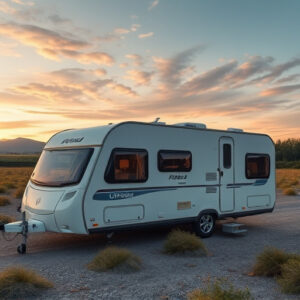
Vacationer Caravans: Hybrid Models Showcase Design, Innovation, and Spacious Living
The Vacationer hybrid caravan range offers modern, luxurious travel with an eco-conscious focus. These caravans blend sleek design, innovative technology,…
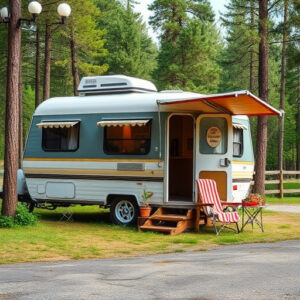
Unveiling the Interior Magic of Vacationer Hybrid Caravans
Hybrid caravans, like Vacationer models, represent a revolutionary blend of motorhome freedom and camping trailer comfort. With smart design, spacious…
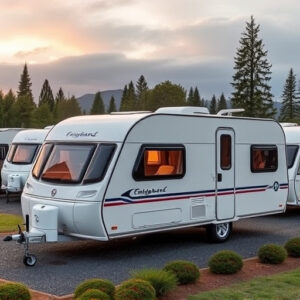
Hybrid Caravans: Online Guide for Vacationers – Specs, Benefits & Purchase
Hybrid caravans are revolutionizing travel by merging home comforts with outdoor exploration. These innovative vehicles offer spacious living areas, modern…
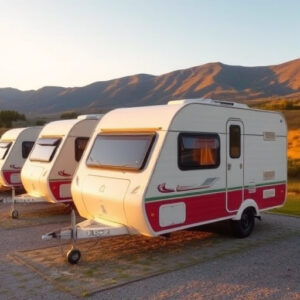
Vacationer Caravans Review: Hybrid Models Compared for Modern Travel
Vacationer Caravans are a popular choice for modern travelers offering comfort, mobility, and diverse amenities tailored to various preferences and…
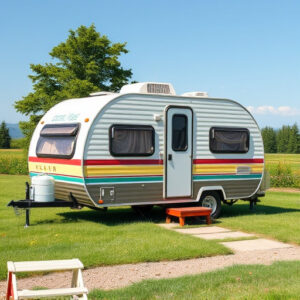
Search Vacationer Caravans: Find Your Perfect Hybrid Match by Size & Layout
Vacationer Caravans (RVs) provide a blend of home comfort and exploration, with hybrid models offering both motorhome freedom and caravan…

Discovering Modern Comfort: Full-Spec Hybrid Caravans for Ultimate Vacations
Hybrid caravans offer a unique blend of motorhome mobility and caravan spaciousness, ideal for modern Australian travelers seeking adventure with…
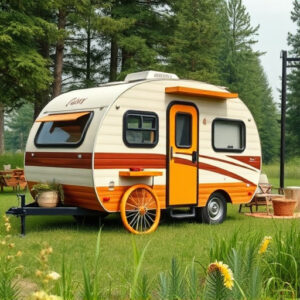
Explore Hybrid Caravans Online: Virtual Buying Guide for Vacationers’ Dreams
Hybrid caravans blend luxury travel with off-road exploration, offering robust suspension, powerful engines, and enhanced clearance for rugged terrain while…
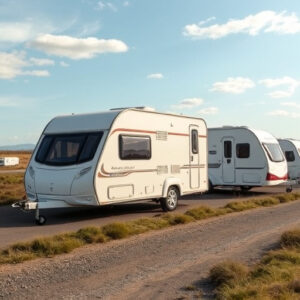
Unveiling Hybrid Caravans: Essential Inclusions for Your Dream Travel Experience
Hybrid caravans from Vacationer Caravans offer a unique blend of outdoor adventure and home comfort, ideal for travelers seeking both…
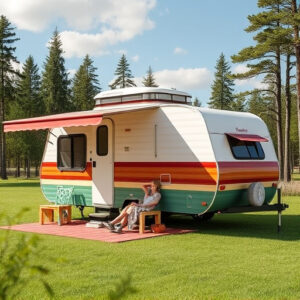
Unveiling the Interior Magic of Vacationer Caravans’ Layout and Amenities
Vacationer hybrid caravans at 59 Capital Link Dr, Campbellfield VIC 3061, Australia, offer a blend of modern design and practicality…
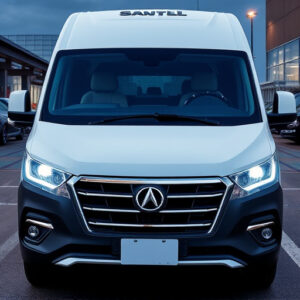
Unveiling Hybrid Caravans: Spacious Comforts for Vacations on Wheels
Hybrid caravans, like those offered by Vacationer Caravans in Campbellfield, VIC, Australia, provide outdoor enthusiasts with the best of both…

Discover Hybrid Caravans: Modern Travel & Camping Fusion
Hybrid caravans, offered by Vacationer Caravans in Campbellfield, VIC, Australia, blend camping and travel experiences with modern amenities. These flexible…

Explore Vacationer Caravan Inclusions: A Hybrid Guide to Comfortable Camping
Vacationer Caravans: Your Gateway to Unforgettable Outdoor AdventuresVacationer Caravans, located at 59 Capital Link Dr, Campbellfield VIC 3061, Australia, offer…

Vacationer Caravans: Unveiling Cozy Hybrid Living on Wheels
Vacationer Caravans offer a unique blend of comfort and mobility with meticulously designed hybrid caravans that provide both modern amenities…

Discover Hybrid Caravans: Ultimate Guide to Vacationer Models and Benefits
Vacationer Caravans in Campbellfield, VIC offers a wide range of hybrid caravans for various travel needs, from weekend getaways to…

Explore Hybrid Vacationer Caravans: Size, Layout & Customization Guide
Vacationer Caravans offer a range of hybrid caravans ideal for both short trips and extended vacations, catering to various travel…

Vacationer Caravans: Explore, Unpack, and Discover Hybrid Tour Secrets
Vacationer Caravans offers a range of hybrid caravans that blend comfort and exploration, catering to diverse travel needs with modern…

Vacationer Caravans: Dimensionally Efficient Layout Guide for Hybrid Models
When planning your dream vacation, choose the perfect Vacationer Caravan from our diverse range at 59 Capital Link Dr, Campbellfield…

Discover Hybrid Caravan Designs for Ultimate Vacationer Adventures
Vacationer Caravans at 59 Capital Link Dr, Campbellfield VIC 3061, Australia offer innovative hybrid designs for diverse outdoor adventures. With…

Vacationer Caravans: Hybrid Quick View and Design Secrets Unveiled
Vacationer Caravans in Campbellfield, VIC, offer modern, spacious, and versatile hybrids for unique camping experiences. With large windows, comfortable seating,…